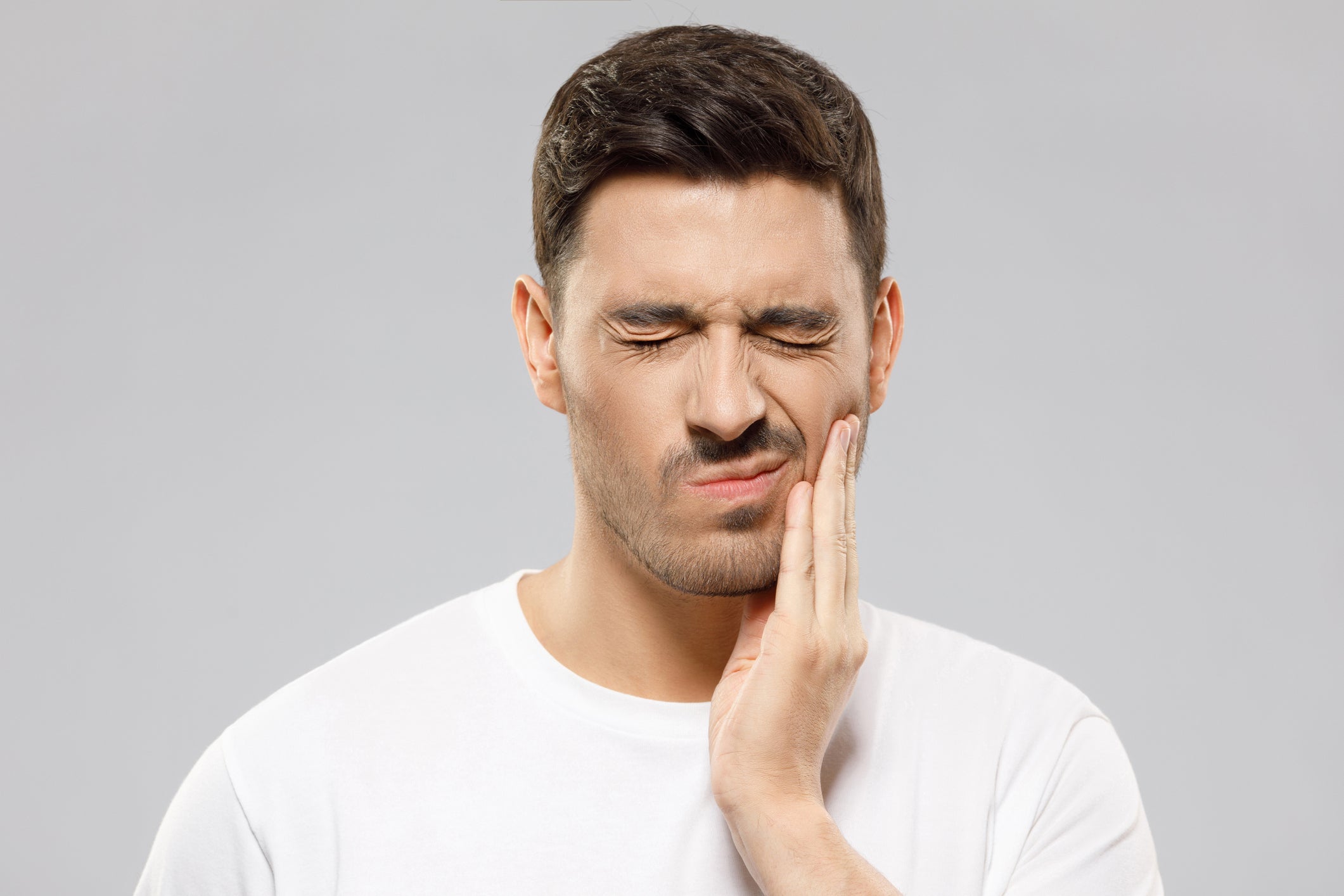-
What is Burning Mouth Syndrome?

Burning mouth syndrome (BMS) is a condition that causes burning pain in the mouth. Approximately 3% of people suffer from burning mouth syndrome. The exact cause is unknown, but it is believed to be related to changes in nerve function.
Treatment typically involves managing symptoms with oral hygiene, dietary changes, and medications. In some cases, behavioral therapy may also be recommended. If you are suffering from burning mouth syndrome, you are not alone. Read on to learn more about BMS and how you can manage your symptoms to feel better.
An Overview of Burning Mouth Syndrome
Burning mouth syndrome (BMS) is a condition that causes burning pain in the mouth. It can affect the tongue, gums, lips, inside of the cheeks, and roof of the mouth. The pain may be constant, or it may come and go. BMS is also known as glossodynia, stomatodynia, orodynia, and burning tongue syndrome.
Are There Different Types?
There are two types of burning mouth syndrome: primary and secondary. Primary BMS has no known cause. Secondary BMS is caused by an underlying medical condition or medications.
Is Burning Mouth Syndrome More Common in Certain People?
Burning mouth syndrome is more common in women than men. It is also more common in people over the age of 50.
What Are the Symptoms of Burning Mouth Syndrome?
The main symptom of burning mouth syndrome is burning pain in the mouth. Other symptoms include dry mouth, bitter or metallic taste in the mouth, and sensitivity to hot or cold temperatures.
What Are the Causes?
The cause of primary BMS is unknown, but it is thought to be related to nerve damage. Secondary BMS can be caused by an underlying medical condition, such as diabetes, Sjogren’s syndrome, nutritional deficiencies, or viral infections. It can also be caused by medications, such as antidepressants, antihistamines, or high blood pressure medications.
Do Medications Cause Burning Mouth Syndrome?
Medications are a common cause of secondary BMS. Antidepressants, antihistamines, and high blood pressure medications are the most common medications that cause BMS.
How Do You Diagnose Burning Mouth Syndrome?
Burning mouth syndrome is diagnosed based on the symptoms. A physical exam and medical history are also done to rule out other conditions with similar symptoms. Blood tests may also be done to check for underlying medical conditions.
What Treatments Are Available for Burning Mouth Syndrome?
There is no cure for burning mouth syndrome, but there are treatments that can help relieve the symptoms. Treatment options include mouthwashes, lozenges, and topical creams. In some cases, antidepressant or anticonvulsant medications may be prescribed.
How Do I Prevent Burning Mouth Syndrome?
There is no known way to prevent burning mouth syndrome. However, if you have an underlying medical condition that is thought to be a cause of BMS, treating the condition may help reduce the symptoms of BMS.
How Long Does It Take for Burning Mouth Syndrome to Resolve?
The duration of burning mouth syndrome varies from person to person. In some cases, BMS may go away on its own. In other cases, it may be a chronic condition that requires treatment.
While there is no cure for BMS, there are treatments that can help lessen the symptoms. Park 56 Dental can work with you to develop a treatment plan that meets your needs. We may recommend changes to your diet, medications to help with pain or dryness, and behavioral therapies to help reduce stress or anxiety. Contact us today for a free consultation!
-
How Your Oral Health Affects Your Mental Health

Your oral health is important for more than just your teeth and gums. It can also affect your mental health. Poor oral health can make your mental health worse. For example, if you have gum disease, you may be more likely to develop depression. And if you have tooth pain, it can lead to anxiety and stress. Read on to learn the ways that your oral health can affect your mental health.
Gum Disease and Depression
Gum disease is an infection of the gums that can cause inflammation, bleeding, and pain. If you have gum disease, you may be more likely to develop depression. This is because the inflammation from gum disease can affect the brain’s chemistry and increase the levels of stress hormones in the body.
Tooth Pain and Anxiety
Tooth pain is a common problem that can lead to anxiety and stress. If you have tooth pain, it can be difficult to concentrate on work or other activities. And the pain can make it hard to get a good night’s sleep. This can lead to fatigue and irritability.
Bad Breath and Social Anxiety
Bad breath (halitosis) is another oral health problem that can cause social anxiety. If you’re worried about your breath, you may avoid social situations where you have to talk to people. This can affect your work, school, and personal relationships.
If you’re experiencing any of these problems, it’s important to see a dentist or other healthcare provider. They can help you manage your oral health and treat any problems that you may have.
Poor Oral Health and Sleep Problems
There is a strong connection between oral health and sleep quality. Poor oral health can lead to sleep problems, which can in turn worsen mental health symptoms.
Poor oral hygiene can cause gum disease, which can lead to inflammation and pain. This can make it difficult to get a good night’s sleep. In addition, tooth pain can also disrupt sleep.
Sleep deprivation can worsen mental health conditions such as depression and anxiety. It can also make it difficult to concentrate and make good decisions. Poor sleep can also lead to irritability and moodiness.
If you are struggling with your mental health, it is important to take care of your oral health. Be sure to brush and floss regularly, and see your dentist
Oral Health and Self-Esteem
It’s no secret that your oral health can have a big impact on your confidence and self-esteem. If you’re not happy with the way your teeth look, it can be hard to feel good about yourself when you smile or talk.
What to Do
There are a few ways that you can improve your oral health and reduce the impact it has on your mental health:
- Make sure to brush and floss your teeth regularly. This will help to remove plaque and bacteria from your mouth, which can cause infections.
- Visit your dentist regularly for checkups and cleanings. This will help to identify any problems early on and prevent them from getting worse.
- Eat a healthy diet and avoid sugary drinks. This will help to keep your teeth healthy and strong.
If you are struggling with your oral health, make sure to talk to a dentist at Park 56 Dental in New York. Our team can help you find the best way to improve your oral health and reduce the impact it has on your mental health.
-
How Your Teeth Can Affect Your Breathing

Do you ever feel like you can’t catch your breath? Or that your mouth is always dry? These could be signs that your teeth are affecting your breathing.
When you breathe through your nose, the air goes down your throat and into your lungs. But if you have a blockage in your nose, such as from a cold or allergies, it can make it hard to breathe. This can also happen if your teeth are crowding your mouth and blocking your nasal passages.
Your teeth can also affect how well you can take deep breaths. If they’re misaligned, it can make it harder for your lungs to expand fully. And if you have an overbite or underbite, it can restrict airflow and make it difficult to get enough oxygen.
If you’re experiencing teeth-related breathing issues, read on for more information and tips for treatment.
Misaligned Teeth and Your Airway
If you have misaligned teeth, it can affect your airway. This is because your tongue may not be able to rest properly in your mouth, which can cause obstruction of your airway. In some cases, this can lead to sleep apnea.
What Is Sleep Apnea?
Sleep apnea is a serious sleep disorder that occurs when a person’s breathing is interrupted during sleep. People with sleep apnea often snore loudly and stop breathing for short periods of time. This can cause irregular heartbeats, low blood oxygen levels, and other health problems.
There are several treatments available for obstructive sleep apnea, including lifestyle changes, mouthpieces, and surgery. If you think that your misaligned teeth may be affecting your airway, you should talk to your dentist about getting braces or other corrective treatment.
Gaps in Your Teeth
If you have gaps in your teeth, it can also make it difficult to close your lips, which can also cause snoring. Gaps in your teeth can also affect the shape of your airway. This can also lead to sleep apnea. If you have gaps in your teeth and think you might have sleep apnea, it’s important to see a doctor so you can get treated.
Missing Teeth
When you lose teeth, it can influence how you breathe. This is because your teeth help to support the structure of your mouth and jaw. Without them, your mouth may collapse inward, which can cause problems with breathing. Additionally, missing teeth can make it difficult to correctly close your lips, which can also lead to breathing difficulties. If you are missing teeth and are having trouble breathing, be sure to talk to your dentist so he can help you find a solution.
The Consequences of Mouth Breathing
In some cases, teeth may also affect how you breathe by causing mouth breathing. Mouth breathing can be caused by several different factors, including teeth that are too far forward in the mouth (known as an overbite), or by a blockage in the nasal passages.
Mouth breathing can lead to several different problems, including dry mouth, bad breath, and even difficulty swallowing. If you think you may be mouth breathing, it is important to see a dentist or doctor so that they can determine the cause and help you find a solution.
What to Do
If you are experiencing any of these problems, it’s important to see your dentist at Park 56 Dental to find out if there is anything that can be done to improve the way you breathe. In some cases, simple dental treatments can make a big difference.
In other cases, more extensive dental work may be necessary. But in all cases, it’s important to talk to your dentist about your breathing problems so that you can get the treatment you need to improve your overall health. Contact us today to schedule an appointment and start getting your z’s!
-
Debunking Dental Myths

There are many reasons dental myths exist. Sometimes, they are perpetuated by people who want to sell a product or service. Other times, they are simply the result of misinformation. And still other times, they may be based on outdated information or folk beliefs.
Whatever the reason, dental myths can be harmful if they lead people to make decisions about their oral health that are not in their best interests. That’s why it’s important to be aware of some of the most common dental myths and to know the facts behind them.
Myth 1: Hard Toothbrushing Damages the Enamel
One common myth is that brushing your teeth too hard will damage your enamel. The truth is that while aggressive brushing can cause wear and tear on your tooth enamel, it is not likely to damage it. However, brushing too hard can irritate your gums and cause other problems.
Myth 2: You Don’t Need to Floss If You Brush Regularly
Another myth is that flossing is not necessary if you brush regularly. This is simply not true. Brushing alone cannot remove all the plaque and bacteria from between your teeth. Flossing is an important part of oral hygiene because it helps to remove these things and can prevent gum disease.
Myth 3: Mouthwashes Don’t Really Work
A third myth is that mouthwashes are not effective at reducing plaque or preventing gum disease. Again, this is false. Mouthwashes can help to reduce plaque and keep your gums healthy. Just be sure to a mouthwash that contains fluoride, as this will help to protect your teeth from cavities.
Myth 4: You Should Brush Your Teeth After Every Meal
You don’t need to brush your teeth immediately after eating. It’s actually more important to wait 30 minutes to an hour before brushing, so that the acids from your food have time to dissipate.
Myth 5: Whitening Products Will Damage Your Teeth
Professional whitening treatments performed by your dentist are safe and will not damage your teeth. Over-the-counter whitening products may cause some sensitivity, but this is usually temporary.
Myth 6: Dental Visits Are Only Necessary When You Have Problems with Your Teeth
It’s important to visit the dentist regularly for checkups and cleanings, even if you’re not experiencing any problems with your teeth. This way, your dentist can catch any problems early and prevent them from getting worse.
We hope this has helped clear up some of the myths surrounding dental care! Remember, brushing twice a day, flossing daily, and visiting your dentist regularly are the best ways to maintain healthy teeth and gums.
Choose Park 56 Dental in New York for Your Dental Needs!
If you’re looking for a dentist in New York, look no further than Park 56 Dental. Our experienced dentists and staff provide comprehensive dental care for patients of all ages, from routine cleanings and exams to more complex procedures like root canals, tooth extractions, and dental implants. We use the latest technology and techniques to ensure that our patients receive the best possible care.
Call us today at 646-679-3989 to schedule an appointment!
RECENT POSTS
categories
- Uncategorized
- Cosmetic Dentistry
- Veneers
- Healthier Teeth
- Teeth Whitening
- Dental Health
- Video
- Dental Emergencies
- Invisalign
- Dental Implants
- Root Canal
- Sedation Dentistry
- Infographic
- Dental Crowns and Bridges
- Dental Anxiety
- Gum Disease
- COVID-19
- Bad Breath
- New York Dentist
- Cut out sugar
- General Dentistry
- Oral Health
- Oral Cancer
- Dry Mouth
- Gum Health
- Toothache
- Dental Sealants
- Cavities



